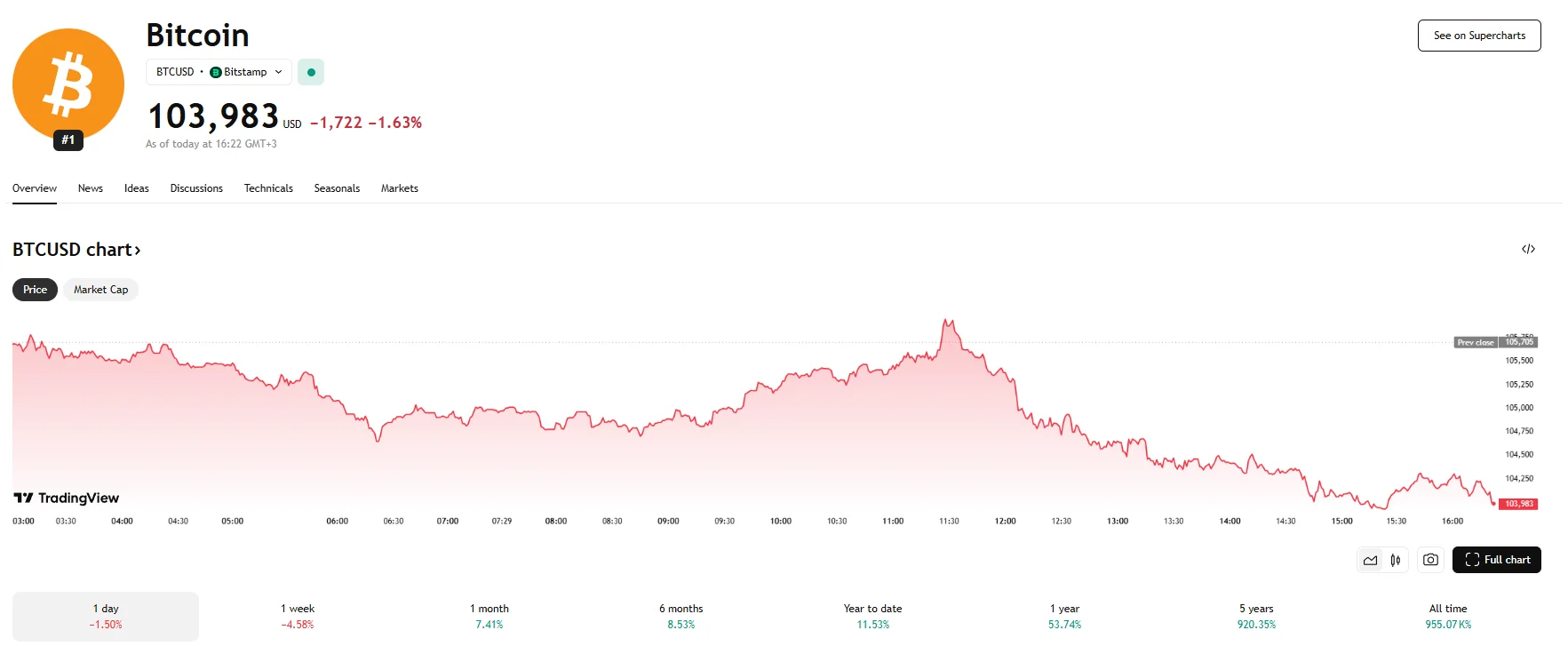Key Moments:Bitcoin ETFs recorded $157.40 million in net outflows between May 27th and May 30th.BlackRock’s IBIT saw a daily net outflow of $430.82 million last Friday.BTC lost ground on Monday as its
Bitcoin ETFs See $157.40 Million in Weekly Outflows, BTC Drops Below $104,000 Bitcoin ETFs See $157.40 Million in Weekly Outflows, BTC Drops Below $104,000
Key Moments:
- Bitcoin ETFs recorded $157.40 million in net outflows between May 27th and May 30th.
- BlackRock’s IBIT saw a daily net outflow of $430.82 million last Friday.
- BTC lost ground on Monday as its price fell 1.63% to $103,983.
Investor Appetite for Bitcoin ETFs Eases
On the week ending May 30th, Bitcoin exchange-traded funds in the United States registered a net outflow of $157.40 million after six straight weeks of positive inflows. The move signals a notable shift in investor participation within the cryptocurrency ETF market.
Data of these outflows emerged amid a Monday marked by depreciation for Bitcoin, seeing as it suffered a decline of 1.63%. As a result, its price slid below the $104,000 threshold and hit $103,983.

IBIT Ends Growth Streak with Sharp Capital Exit
BlackRock’s iShares Bitcoin Trust (IBIT) faced a significant withdrawal of investor funds, marking its daily net outflow of $430.82 million on May 30th, 2025. Up to that point, the ETF had maintained a 34-day streak of uninterrupted inflows. This reversal contributed heavily to the broader weekly retreat in Bitcoin ETF investments.
Market exits appeared concentrated on the final two trading days of that week, aligning with macroeconomic concerns that affected traditional and crypto assets alike. Notable events that affected market sentiment included the reignition of trade tensions between the US and China when President Donald Trump claimed that China had breached the conditions of a recently signed trade truce. Trump’s tariffs were also reinstated following a court ruling that had deemed them illegal. This week’s markets also faced pressure after news of an additional 25% tariff hike on steel and aluminum exports designated for the US made headlines.
The recent performance of Bitcoin ETFs offers new grounds for examining the roles of policy developments, technological changes, and global financial trends in shaping digital asset markets. The departure from consistent ETF inflows raises questions about how external economic pressure points may influence investor allocation decisions across cryptocurrency instruments.






